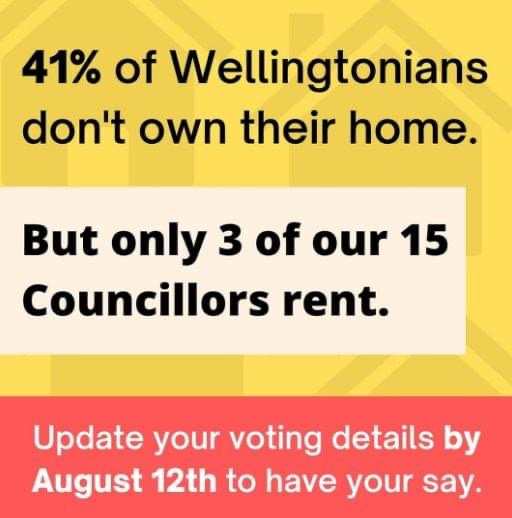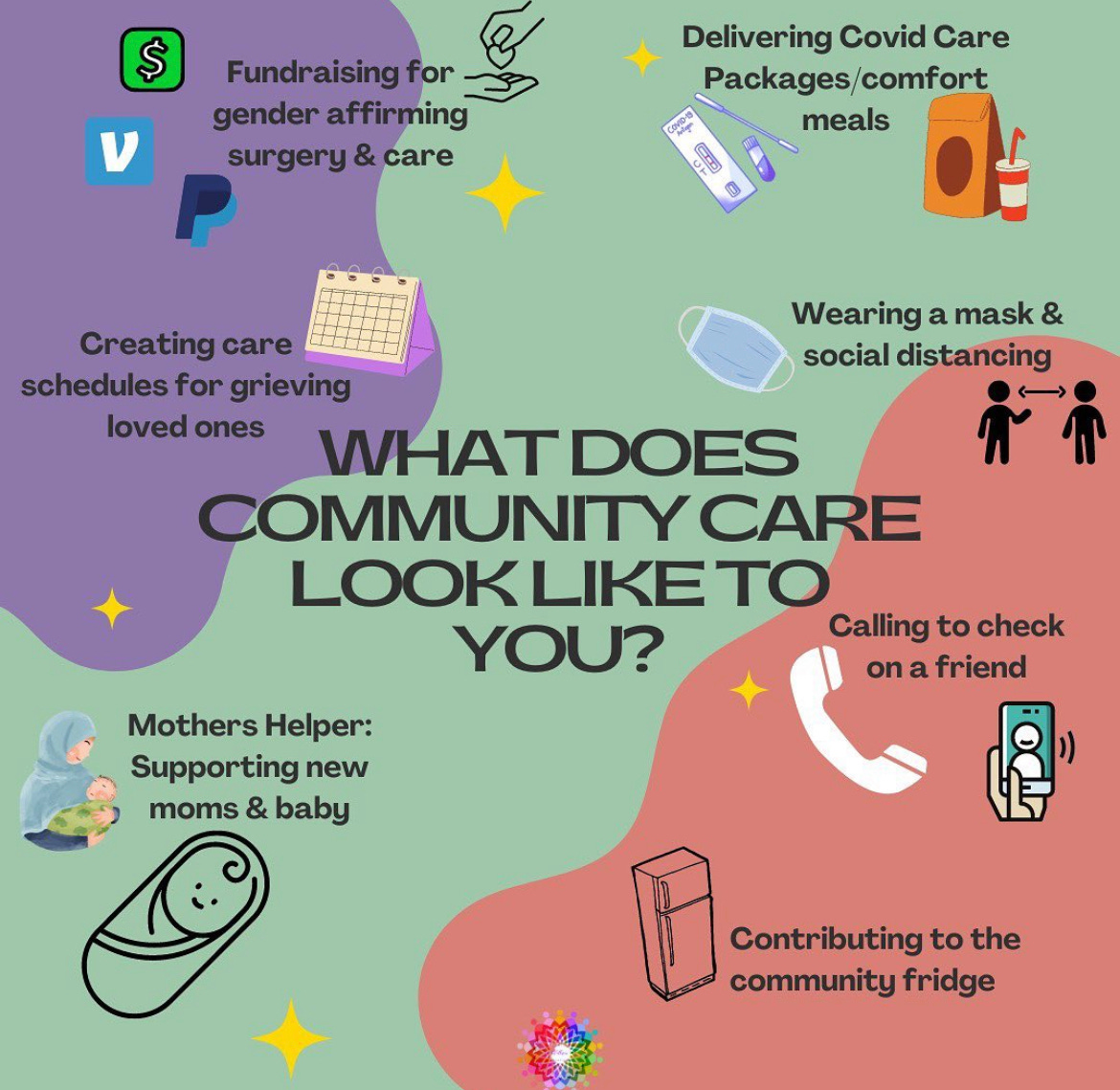Welcome to The Call. The place where we come together to try to make things better. Everything feels overwhelming right now, like there’s too much pain in the world to ever make a difference.
We can all make a difference - even if it’s in just a tiny way. Here are some causes to get behind. I hope they help you to feel less helpless.
What is happening?
Many of us are really struggling with the cost of living now and expensive petrol prices. Many parents - particularly single mothers - are struggling to feed their children. A study published in the Journal of The Royal Society of New Zealand, has found that single mothers are really, really struggling with food insecurity.
Previous research has shown 19 percent of our country’s tamariki are living in homes experiencing severe-to-moderate food insecurity.
Where can I read more?
Cost of living: Single mothers struggling to feed children due to food insecurity - study
Body camera child poverty study reveals 'shameful' extent of problem
'We've all failed' - Report finds child poverty in NZ unchanged
The rising price of groceries and the human cost of food insecurity
What can I do to help?
Project Gender are looking at opportunities for systemic change to ensure greater equity for low income, single parent households. If you do not live with a partner or spouse, if you have dependent children under the age of 18 years old who live with you at least half of the time, and if you live in New Zealand - you can share your experience through their survey here. If that’s not you - share the survey to make sure as many voices are reached as possible.
The Bare Necessities charity gives care packs to hapū māmā and pēpē that are full of essential items such as maternity pads, nursing pads, nursing and nappy cream and other personal care items. They also have a programme designed to assist mothers in returning to paid work after having children. They have a list of needed items or you can donate money. You can also follow them on Instagram where they share their mahi.
You can sponsor a child in Aotearoa through Variety NZ. Variety have also set up Payroll Giving.
Donate to a food bank in your area - here’s a breakdown. Each food bank has a different bank account and you can set up an automatic payment.
What is happening? A new study looking at Takatāpui/LGBTIQ+ and homelessness has found that despite being around 5% to 10% of the broader population, about 20% to 40% of people experiencing homelessness are part of the rainbow community.
This follows research in 2021 that found some takatāpui and LGBTQIA+ people are having to hide their sexual orientation or gender identity just to find a place to live.
Almost one in five transgender respondents in Waikato University's 2018 Counting Ourselves survey said they had experienced homelessness. One in every 100 New Zealanders lives in severe housing deprivation (1%). Yet for trans people, going by international statistics, the figure is 22 to 40 per 100 (22-40%).
Where can I read more?
Research paper: “You’re so powerless”: Takatāpui/LGBTIQ+ people’s experiences before becoming homeless in Aotearoa New Zealand
Discrimination in housing market leading to takatāpui and LGBTQI homelessness - study
What can I do to help?
Gender Minorities Aotearoa run a national peer to peer trans and rainbow housing network, Rainbow Housing NZ [private group], which assists trans people who may otherwise be homeless into safe and appropriate housing.
You can help to end trans homelessness by offering a spare room in your home or flat or other accommodation, looking for a flatmate, or offering your rental (if you have one), on transgender housing networks like Rainbow Housing NZ.
Or you can email your local MP and tell them to make transgender housing a priority. Your email can be as simple as a few sentences sharing the statistics you’ve read here and saying you want to protect trans and Takatāpui people and want them to prioritise housing for our most vulnerable.
You can also donate to Gender Minorities Aotearoa to help them with their amazing mahi.
What is happening?
Routine childhood immunisations have dropped dramatically globally during the COVID-19 pandemic. Internationally, 25 million children in 2021 alone have missed out on life-saving vaccinations. This is the largest sustained drop in childhood immunisation in a generation.
Immunisation coverage at six months of age has fallen in New Zealand from a high of around 80% in early 2020 to 67% by June 2022, and as low as 45% for Māori.
Where can I read more?
NZ children face a ‘perfect storm’ of dangerous diseases as immunisation rates fall
More parents decline important tried and tested vaccines for their children
What can I do to help?
Talk to your loved ones about vaccination. Share with them that vaccination is safe and life-saving. When you vaccinate your tamariki - share the experience online to normalise what was once a normal and accepted thing to do to protect our babies and community.
Offer to drive your friends and family to get their child’s vaccination. Offer to book the appointment for them or remind them - often it’s just that people are struggling to get to an appointment or are too overloaded with mahi to make the appointment - help!
You can also email Prime Minister Jacinda Ardern [jacinda.ardern@parliament.govt.nz], Minister of Health Andrew Little [andrew.little@parliament.govt.nz] , Associate Minister of Health Ayesha Verrall [a.verrall@ministers.govt.nz], and share with him this quote from World Health Organization (WHO) Director-General Tedros Adhanom Ghebreyesus:
Planning and tackling COVID-19 should also go hand-in-hand with vaccinating for killer diseases like measles, pneumonia and diarrhoea.
And share this article from researchers Anna Howe, Emma Best, and Matthew Hobbs. In your email you can say that you demand that the government:
fully fund and support Kaupapa Māori and Pacific community health providers to provide life-saving vaccination.
Increase vaccination providers beyond GP clinics, and
build the vaccination workforce.
A selection of small ways you can help your community this month:
The Wellington Early Intervention Trust is a therapy-based service for pre-school children with additional needs. My little boy went there when he was three until he was five and it was incredible for him. I wrote about our experience here.
You can donate to enable the Wellington Early Intervention Trust to continue it's work with pre-school children with disabilities.
The 2022 Local Elections are very soon! Ensure you’re registered to vote by checking here. Or call 0800 36 76 56 and ask us Vote NZ to send you an enrolment form. You can vote from 16 September to 8 October. I’ll be voting for Tory Whanau in Te Whanganui-a-Tara. You can vote in your region for someone who cares about the things you care about - I’m voting Tory to protect our most vulnerable, focus on affordable housing, support the arts, and push for initiatives that will help to address climate change.
A third case of Monkeypox has been found in Aotearoa. A five-page letter has been sent to Prime Minister Jacinda Ardern, Minister of Health Andrew Little, Associate Minister of Health Ayesha Verrall, and Health New Zealand and the Māori Health Authority to ACT NOW to protect folks against Monkeypox. You can email them too and say you support the letter - just cut and paste it into your email. Emails are: andrew.little@parliament.govt.nz, jacinda.ardern@parliament.govt.nz, a.verrall@ministers.govt.nz.
You can also share the open letter on Facebook, Instagram and Twitter (whatever your poison is) to raise awareness.
The Green Lab in Ōtautahi Christchurch is creating an awesome community garden - Mairehau Neighbourhood Garden! They’re looking for volunteers to help with the garden. They’re also looking for untreated timber off cuts to recycle for the raised beds. Message them or email info@thegreenlab.org.nz. You can also donate.
*
Flourish Café has opened in Takapuna, Tāmaki Makaurau from 7am-3pm at 19 Como Street, Takapuna.
It’s training café run by Project Employ. Project Employ’s vision is to create a community where young people with intellectual or learning disabilities are engaged in meaningful, paid employment in the same way as any other member of society.
The cafe provides a genuine stepping-stone to employment and independence for trainees, creating life-changing opportunities. Trainees are involved in all aspects of running the café - a unique, authentic work environment in which every situation is recognised as a valuable learning opportunity.
If you can’t visit - follow them on Facebook and Instagram.
Ukraine is still in great need - read the Urgent Ukraine issue of The Call.
Arohanui. Thank you for your generosity.
Em x









Ok I’m sorry for being so juvenile but my main takeaway was “Emily Writes declares ‘I’m voting Tory’”. I will definitely donate some money to make up for being so not classy 😂
Love these, thank you so much Emily 🙌 Weirdly, they give me hope despite how grim the reading is